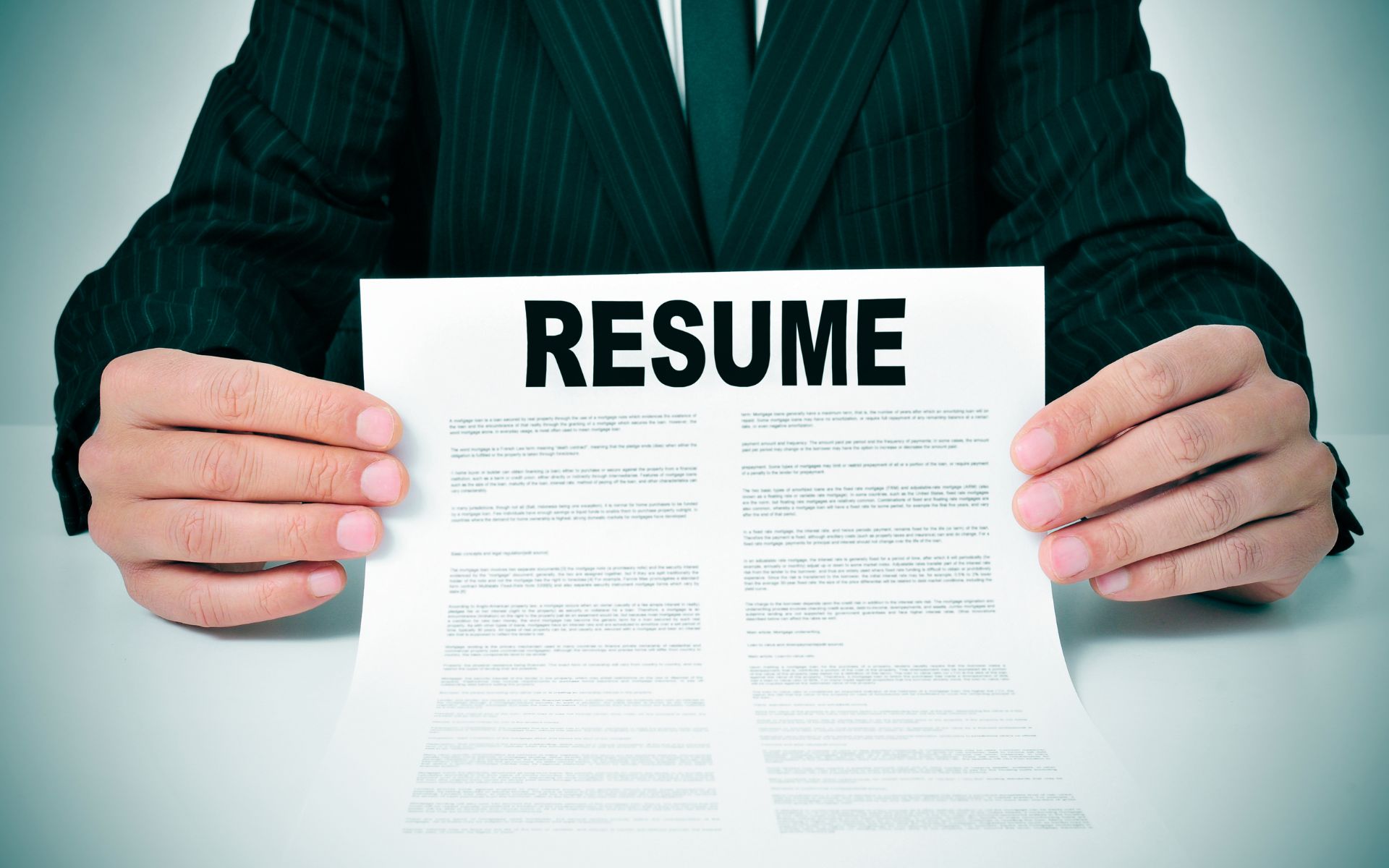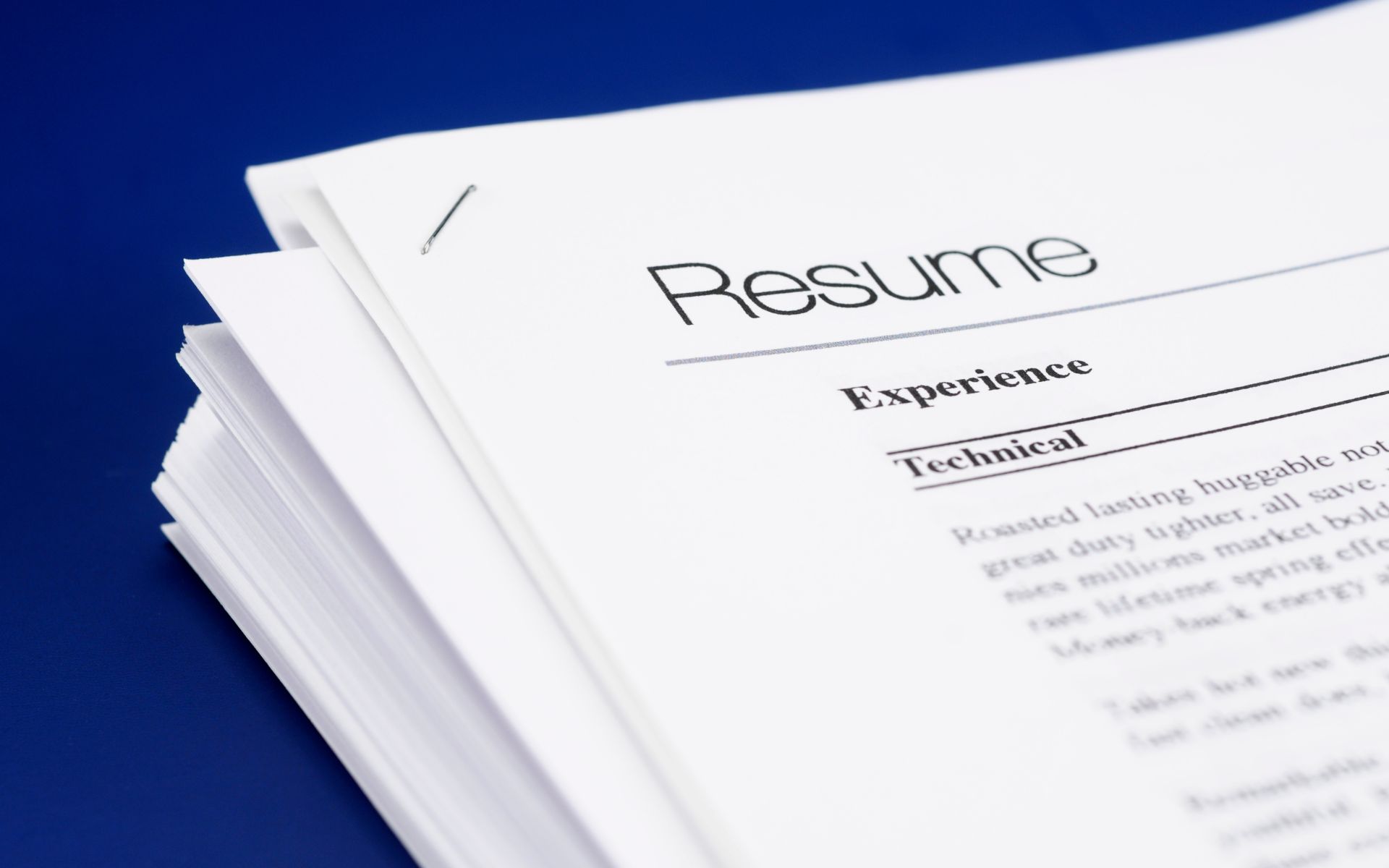30 Important Things You Should Know Before Your Job Interview
When it comes to a job interview, making the first impression really does matter. You might have heard the old saying, “You never get a second chance to make a first impression.” Just the thought of a job interview is rather intimidating, and it can cause stress, self-doubt, and anxiety.
When you are anxious, it’s hard to make the best first impression, but there are a few simple ways to succeed in your job interview. The most effective way is preparation. You need to do your research before your job interview, and here are 30 important things you should certainly know.
1. Match Your Skills
First of all, one of the most important things you should know before your job interview is matching your skills. A job description usually includes the necessary skills required for the work. Try to match your skills before your job interview so that you know exactly your skill set. Matching your skills to the job requirements is important for getting the job and succeeding in the role. If you are hired for a position that is not a good fit for your skills and experience, you may need help to meet your employer’s expectations and may find yourself unhappy in the role.
Matching your skills to the position you are applying for means carefully reading through the job description and requirements. Pay attention to the specific skills and experience the employer is looking for, and then think about how your skills and experience match up. For example, do you have the necessary qualifications, or can you demonstrate related experience that would make you a strong candidate for the position?
One way to match your skills to the job requirements is by creating a list of your own skills and qualifications and then comparing them to the requirements listed in the job description. This can help you identify gaps in your skillset and highlight areas where you may be powerful. If there are gaps in your skillset, think about how you can address them – for example, by taking an online course or gaining relevant experience through a volunteer position.
Another way to match your skills to the job requirements is by researching the company and the industry. This can help you understand the specific skills and experience valued in the industry and give you a sense of the company culture and values. By demonstrating an understanding of the company and the industry, you can show that you are genuinely interested in the position and are committed to making a valuable contribution.
2. Know the Name of Your Potential Boss
Greeting your potential boss by name is also considered one of the most important things you should know before your job interview. It demonstrates that you are a proactive and prepared candidate who has taken the time to research and learn everything they can about the role and the organization. Knowing your potential boss’s name can also help you to build rapport and set the tone for the rest of the interview.
It is important to do your research and find out as much information as you can about your potential boss before your job interview. Knowing their background, experience, and leadership style can help you to better understand how to communicate with your potential boss and create a more positive and productive relationship.
Additionally, if you are offered the position, you will likely be working closely with your boss, so understanding their work style and communication preferences can help you to better prepare for the next steps in the hiring process.
3. Find the Role of the Company in the Industry
Information is the key to success, so finding the company’s role in the industry is another essential thing to do before your job interview. This information will allow you to understand your role better if you’re hired. It also demonstrates that you know the company’s place in the market and how it competes with other companies in the industry.
In addition, understanding the company’s role in the industry can help you prepare for the interview. By researching the company’s competitors, you can gain insights into the company’s challenges and opportunities, as well as the industry trends and best practices. This can help you tailor your responses to the interview questions and better understand the role’s expectations.
Moreover, you will be able to build rapport during the interview knowing this one of the most important things before your job interview. Demonstrating a good understanding of the company’s position in the market can create a positive first impression and establish a connection with the interviewer. This can set the tone for the rest of the interview and make you a more memorable candidate.
4. Learn About Recent Projects
Another one of the most important things you should know before your job interview is the recent projects of the company. Knowing about recent projects is essential for several reasons. First, it shows that you have researched and are genuinely interested in the company and the position. It demonstrates that you are up-to-date with the company’s activities and achievements.
Taking into account this one of the most important things you should know before your job interview, you can gain insights into the company’s goals, values, and culture. This can help you tailor your responses to the interview questions and better understand the role’s expectations. Also, by showing that you are aware of the company’s recent activities, you can create a positive first impression and establish a connection with the interviewer.
Furthermore, being aware of recent projects, you can prepare for the next steps in the hiring process. If you are offered the position, you will join a team working on exciting projects and contributing to the company’s success. By understanding the company’s recent projects, you can start to think about how you can contribute to the team and make a valuable contribution to the company.
Read also – 3 Most Important Tips for a Successful Interview
5. Find Out the Company’s Dress Code
Finding out the company’s dress code is also considered one of the most important things you should know before your job interview. It shows that you are respectful of the company’s culture, making you feel more comfortable during the interview, can prepare you for the job itself, and can help you to avoid any potential embarrassment. Doing your research and dressing appropriately can make a positive first impression and increase your chances of getting hired.
Following this one of the most valuable tips can help you to feel more comfortable and confident during the interview. Dressing appropriately you will project a professional image and make an excellent first impression on the interviewer. This can set the tone for the rest of the interview.
In addition, understanding the company’s dress code can help you prepare for the job. Different industries and roles have different expectations for attire, and understanding the dress code can give you an idea of the company’s culture and expectations for professionalism.
6. Hide Your Tattoos
As tattoos become more and more mainstream, many people may not think twice about showing off their ink. However, when it comes to a job interview, it’s essential to consider whether or not to hide your tattoos.
While it’s ultimately up to you to decide whether or not to reveal your tattoos during a job interview, it’s important to remember that some employers may have a negative bias against visible tattoos. This is especially true for industries that place a high value on professionalism and a conservative appearance, such as law or finance. If you feel your tattoos may detract from this image, consider covering them up for the interview.
However, that being said, not all employers have opposing views on tattoos, and some may even see them as a positive aspect of your individuality. Therefore, it’s important to research the company culture and dress code and to make an informed decision based on that information. Ultimately, deciding to hide your tattoos during a job interview is personal.
7. Know Your 5-Year Plan
Job interviews can be nerve-wracking, but one way to boost your confidence is to come prepared with a clear vision for your future. This is why it’s important to have a solid understanding of your 5-year plan before going into a job interview.
Knowing your 5-year plan demonstrates that you have thought deeply about your career goals and that you are a motivated and focused individual. It allows you to articulate your aspirations and how this job fits into your long-term goals, which can impress potential employers. Moreover, having a clear plan for the future can help you to evaluate whether the position and the company align with your goals. This is crucial for ensuring job satisfaction and career progression.
However, it’s important to remember that your 5-year plan is not set in stone. It’s okay to have flexibility and adaptability, especially as life can be unpredictable. The key is to have a general direction in mind and be open to new opportunities and possibilities. Therefore, take into account this one of the most important things before your job interview.
8. Prepare a List of Questions
Asking questions is one of the most important things you must do in a job interview, so you must prepare in advance. And then you won’t have to think long and hard when the hiring manager asks you. Look over the job description to see if there is anything you would like to clarify. This is often covered during the interview, but if you still need to, you’ll be prepared to ask about it.
Start by clarifying the tasks that will be assigned to you. Then, ask what results the employer expects from the employee and by what criteria they will be evaluated. Ask to hear about upcoming plans and projects. In this way, you will give the impression of a result-oriented candidate.
Having a list of questions for your job interview shows the interviewer that you have done your research and are genuinely interested in the position. It can also help you to assess whether the role and company are a good fit for you. You can gain insight into the company’s values, goals, and work environment by asking thoughtful questions.
Remember, the job interview is a two-way conversation, and asking questions is an opportunity to showcase your curiosity, enthusiasm, and critical thinking skills. Don’t be afraid to ask follow-up questions or clarify anything you don’t understand. This can help you to make an informed decision if you receive an offer.
fore your job interview. Hopefully, these tips will help you to get the job of your dreams. If you have any other tips, feel free to share them with us in the comments section.
9. Prepare Responses to Common Interview Questions
Going into a job interview can be intimidating, but one way to ease the nerves is to prepare responses to common job interview questions. Having well-thought-out responses can help you feel more confident and prepared, making a positive impression on the interviewer.
Some common interview questions include, “What are your strengths and weaknesses?”, “Why are you interested in this position?” and “Tell me about a time when you faced a challenge and how you overcame it.” Preparing for these questions in advance can help you to answer them thoughtfully and articulately.
When preparing your responses, it’s important to think about how your experiences and skills align with the job requirements. Be specific in your answers and provide examples that demonstrate your abilities. It’s also important to be honest and authentic in your responses, as interviewers can usually tell when someone is not truthful.
10. Practice Your Responses to Those Questions
Practicing your responses to common job interview questions can help refine your answers and improve your delivery. You will be able to identify areas where you may struggle or need more preparation. By practicing, you can feel more comfortable and natural in your responses, which can make a positive impression on the interviewer.
When practicing your responses to job interview questions, it’s important to focus on the content of your responses and your nonverbal communication. Practice maintaining eye contact, speaking clearly and confidently, and using natural gestures to emphasize your points. You can practice with a friend or family member or even record yourself and review the footage to identify areas for improvement.
Also, listen carefully to the interviewer’s questions and respond thoughtfully. Don’t rush through your answers or give canned responses – take your time to provide specific examples that demonstrate your abilities and align with the job requirements.
11. Make Sure You Know the Location of the Interview and Arrive Early
Make sure you have the exact location of the job interview, including the address and any additional directions or instructions. Take some time to research the area and map your route in advance, considering traffic and potential delays. Do a trial run before the day of the interview to make sure you know exactly where you’re going.
It’s also important to factor in enough time to account for unexpected delays, such as traffic or construction. Arriving late to an interview can create a negative first impression, so plan to arrive early. This can also give you time to collect yourself, review your notes, and mentally prepare for the interview.
12. Have a Clear Understanding of Your Resume and Work History
Your resume and work history are essential components of the job interview process. They provide a snapshot of your experience, skills, and qualifications and are often the first impression a potential employer has of you. So, reviewing your resume and work history carefully before your interview is essential. Make sure you can speak confidently about your experience and accomplishments and that you can explain any gaps or changes in your employment history. This will demonstrate your professionalism and attention to detail to the interviewer.
In addition, be prepared to discuss how your skills and experience align with the job requirements. This will require careful preparation and research into the company and the specific role you’re applying for. Use your resume and work history as a starting point to highlight your strengths and demonstrate your fit for the job.
Be honest and transparent about your work history. If there are areas where you may have fallen short or faced challenges, be prepared to discuss how you overcome these obstacles and what you learned from them. Honesty and self-awareness can go a long way in building trust with the interviewer and demonstrating your ability to handle difficult situations.
13. Be Ready to Provide Specific Examples of Your Experience
Regarding job interviews, more is needed to state your qualifications and experience. To stand out from other candidates and demonstrate your value, you need to be ready to provide specific examples of your experience. This is one of the most important things you should know before your job interview.
During your job interview, the interviewer will likely ask you questions about your experience and how it relates to the job. You’ll need to provide concrete examples illustrating your skills and accomplishments to answer these questions effectively. This could include specific projects you’ve worked on, challenges you’ve faced, or results you’ve achieved in previous roles.
It’s important to prepare these examples in advance of your job interview. First, review the job description and company website to get a sense of the skills and experience the company values. Then, think about your own experience and identify specific examples that demonstrate your fit for the job.
When providing examples, emphasize your role in each situation and the specific actions you took. This will help the interviewer understand how your skills and experience align with the job requirements and demonstrate your ability to communicate effectively and work collaboratively.
14. Bring Copies of Your Resume and Any Other Relevant Documents
When preparing for a job interview, it’s important to bring copies of your resume and other relevant documents. Even if you’ve already submitted your resume and other materials online, it’s always a good idea to have physical copies with you during the job interview. This shows that you’re well-prepared and professional. Additionally, it provides a reference for you and the interviewer to discuss your work history and experience.
In addition to your resume, you may want to bring other documents that showcase your skills and qualifications. For example, you could bring samples of your work or a portfolio highlighting your achievements. If you’re interviewing for a position requiring specific certifications or licenses, be sure to bring copies of those.
Having a pen and paper to take notes during the job interview is also a good idea. Following this one of the most important tips, you will definitely remember valuable details and show that you’re actively engaged in the conversation.
15. Practice Your Body Language and Nonverbal Cues
Effective communication is often more than words, and nonverbal cues play a critical role in conveying your message. Your body language can communicate confidence, attentiveness, and engagement, or it can signal discomfort, nervousness, and disinterest. A relaxed yet alert demeanor, good posture, and eye contact are positive nonverbal cues while slouching, fidgeting, and avoiding eye contact send negative signals.
Consider practicing with a friend or family member to improve your nonverbal communication skills. Job interviews allow you to observe your body language and make adjustments as necessary. You can also record yourself practicing in front of a mirror or use video conferencing tools to practice with a colleague.
Remember that your body language and nonverbal cues can shape the interviewer’s impression of you, even before you speak. You can project the right image and make a positive impression by practicing and refining your nonverbal communication skills. Ultimately, this can increase your chances of securing the job you want.
16. Be Ready to Discuss Your Strengths and Weaknesses
Discussing your strengths and weaknesses is a common question during job interviews and requires preparation. When talking about your strengths, it’s important to highlight your relevant skills and experiences and provide examples of how you have used them to succeed in the past.
Discussing your weaknesses can be challenging, but it’s essential, to be honest, and show that you are working to improve. Avoid vague answers and discuss a specific area where you have struggled and what you are doing to overcome it.
Frame your weaknesses positively by highlighting what you are doing to improve. For example, if you need help with public speaking, mention that you are taking a course to improve your skills. This shows that you are proactive and willing to learn. In addition, by preparing to discuss your strengths and weaknesses, you can demonstrate your value to the company and show your commitment to personal growth and development.
17. Practice Active Listening Skills
Active listening is a crucial skill for a successful job interview. It involves fully concentrating on what the interviewer is saying and actively engaging with them rather than just waiting for your turn to speak.
To practice active listening, give the interviewer your full attention and avoid any distractions. Also, avoid interrupting the interviewer and paraphrasing what they have said to show that you have understood their points and are fully engaged in the conversation.
By demonstrating active listening skills, you can show the interviewer that you are attentive, engaged, and able to communicate effectively. This can help you make a positive impression and increase your chances of success in the job interview.
18. Be Prepared to Discuss any Gaps in Employment
To increase your chances of success in a job interview, it’s important to be ready to discuss any gaps in your employment history. Employers often ask about these gaps to understand your work history and evaluate your commitment to your career.
To prepare for this question, clearly understand your work history and the reasons for any gaps. Then, focus on the positive experiences and skills you gained during that time, such as volunteer work or personal projects demonstrating your commitment to your field.
Be honest and transparent about any gaps in employment. For example, if you took time off for personal reasons, simply explain that to the interviewer. Doing so can demonstrate your professionalism and commitment to your career.
19. Discuss any Relevant Skills or Certifications You Have
If you want to succeed in a job interview, you should be ready to discuss your relevant skills and certifications. Employers look for candidates with the right skills to perform the job and having additional certifications or specialized training can make you stand out from other candidates.
Make a list of all the skills and certifications you have that are relevant to the job before the job interview. This could include technical skills, soft skills, or specialized knowledge. Be prepared to discuss how these skills will be useful in the job, and provide specific examples of how you have used them in the past. If you have any relevant certifications, mention them during the job interview.
Discussing your relevant skills and certifications demonstrates to the employer that you have the right skills and knowledge to succeed in the position. This can increase your chances of being hired and make a positive impression on the employer.
20. Be Prepared to Discuss Your Salary Expectations
It’s imperative to be prepared when preparing for a job interview to discuss salary expectations. To do this, research the typical salary range for the position you are applying for and be prepared to bring it up if the interviewer doesn’t.
When discussing salary expectations, be honest and realistic based on your experience, education, and job responsibilities. Aim high rather than low, but also keep in mind that salary is not the only factor to consider when accepting a job.
Being prepared to discuss your salary expectations shows the employer that you are serious about the job and understand your market value. This can help you stand out from other candidates and increase your hiring chances. Remember to consider all aspects of the job, including benefits, work-life balance, and company culture, when making your decision.
21. Be Ready to Discuss Your Availability and Schedule
Your availability and schedule may seem like a small detail, but it can have a big impact on your chances of getting the job. Employers want to know that you are able to commit to the position and that your schedule is compatible with the needs of the company.
Before the job interview, make sure you have a clear understanding of your availability and any scheduling conflicts that may arise. This could include other work commitments, personal obligations, or any other responsibilities that may impact your ability to work.
During the interview, be honest and realistic about your availability. It is important to inform your schedule about any other commitments you may have. Being honest and addressing potential scheduling conflicts early on is better than being caught off guard later on.
It’s also important to keep in mind that flexibility is key when it comes to scheduling. If you can accommodate the needs of the company, you may be more likely to get the job. However, you should also make sure that you are not compromising your own needs and obligations in the process.
22. Be Confident and Enthusiastic
When it comes to job interviews, having confidence and enthusiasm can often be the difference between getting the job and not. It’s important to remember that you bring unique knowledge, skills, and strengths that could be of great benefit to the company. That’s why it’s important to research the company and the role you’re applying for and to prepare for any potential questions.
Before the job interview, take a few minutes to relax and focus on positive thoughts. This will help you to remain confident and enthusiastic during the interview. During the interview, make sure to smile, maintain good eye contact, and answer questions clearly and confidently. Also, feel free to ask your own questions, as this will show the interviewer that you’re genuinely interested in the role.
Also, don’t forget to express your appreciation for the opportunity. This appreciation, combined with your enthusiasm and confidence, will prove to the interviewer that you have what it takes to be successful in the role. All in all, having confidence and enthusiasm can go a long way in making a good impression and helping you stand out from other applicants.
23. Practice Your Elevator Pitch
The elevator pitch is essential because it’s often the first thing that an interviewer will hear from you. A well-crafted elevator pitch can help you make a strong first impression, showcase your skills and experience, and demonstrate your enthusiasm for the position.
You should identify your unique selling points to craft a compelling elevator pitch. Consider your skills, experience, and accomplishments that make you stand out from other candidates. Then, tailor your pitch to the job you’re applying for. Finally, highlight the specific qualifications and skills that are required for the position and explain how your experience and skills align with them.
When delivering your elevator pitch, be confident, concise, and enthusiastic. Practice delivering your pitch in front of a mirror or with a friend to get comfortable with the content and delivery.
24. Be Prepared to Provide References if Requested
When preparing for a job interview, it’s important to be aware that you may be asked to provide references. Employers often ask for references to gain insight into your work history and to confirm the information you provided during the application process.
To be prepared for this request, it’s a good idea to make a list of professional references ahead of time. This could include former supervisors, colleagues, or clients who can speak to your work experience and skills. Be sure to ask for their permission to use them as a reference and provide them with information about the job you are applying for so that they can tailor their feedback to the position.
If you are asked to provide references, it’s important to do so in a timely manner. Be sure to follow up with your references to confirm that they have been contacted and to thank them for their help. It’s also a good idea to keep your references updated on the status of your job search and to let them know when you have accepted a position.
By being prepared to provide references, you can demonstrate your professionalism and show the employer that you have a strong network of individuals who can speak to your work experience and skills. This can help you to make a positive impression and increase your chances of success in the job interview.
25. Make Sure Your Social Media Profiles are Professional and Up-to-Date
Social media is now a vital aspect of modern life, and it’s important to ensure that your profiles are professional and up-to-date, especially when job hunting. Many job seekers neglect to review their social media profiles, which can be costly as recruiters and employers frequently check out candidates online.
To make a positive first impression, it is advised to review your profiles, remove inappropriate or controversial content, and ensure that your profiles reflect your current skills, experiences, and career goals. Additionally, reviewing your privacy settings and keeping personal and professional profiles separate is essential.
Consistent across all social media platforms can create a strong personal brand and increase your chances of getting the job you want. Therefore, before a job interview, take the time to ensure that your social media profiles are professional and up-to-date.
26. Follow Up with a Thank-You Note or Email After the Interview
Sending a thank-you note or email after a job interview is one of the most important things you should know before your job interview. This simple gesture can make a significant impact on the impression you make on your potential employer. It demonstrates your gratitude for the opportunity to meet with the hiring manager and your interest in the job while providing an additional chance to reiterate your qualifications and skills.
Your thank-you message doesn’t need to be lengthy. A short email expressing appreciation for the interview and highlighting a few key points is sufficient. However, personalizing your message and tailoring it to your conversation during the interview is essential. Additionally, a thank-you note or email is an opportunity to correct any misunderstandings or miscommunications that may have occurred during the job interview.
A thank-you note or email can set you apart from other candidates who didn’t take the time to send a follow-up message. In addition, it serves as a reminder to the hiring manager of your application and shows your enthusiasm for the position.
27. Discuss Any Special Accommodations You May Need for the Interview
Preparing for a job interview can be overwhelming, but knowing what you need to do before the job interview can help alleviate stress. One important thing to keep in mind is discussing any special accommodations you may need. Letting the employer or interviewer know if you require any accommodations due to a disability or medical condition can help ensure a fair and equal opportunity to present yourself in the best light possible.
This discussion can help prevent unnecessary stress or anxiety during the interview process. It is essential to remember that disclosing any disabilities or medical conditions is entirely voluntary, and you should weigh the pros and cons of disclosing such information. In some cases, discussing accommodations may help dispel any potential misunderstandings or assumptions about your ability to perform the job.
It demonstrates your professionalism and proactive approach and helps ensure a fair and equal opportunity to present yourself in the best possible light. Remember to carefully consider the decision to disclose any disabilities or medical conditions.
28. Be Prepared to Discuss Why You’re Interested in the Job and the Company
Job interviews provide a chance for potential employers to assess your qualifications and gauge your interest in the position and the company. Thus, it’s essential to be prepared to discuss why you’re interested in the job and the company. Doing so can help demonstrate your enthusiasm, knowledge, and fit for the role.
Conduct research about the company and job posting beforehand to understand the company’s values, culture, and specific qualifications they’re seeking. This information can help tailor your responses during the job interview and demonstrate your interest in the position.
Discussing your interest, provide specific examples and highlight any challenges or opportunities the job presents. Doing so can demonstrate that you understand the role’s responsibilities and show your excitement about the potential to contribute to the company’s success.
29. Bring a Notepad and Pen to Take Notes
To be fully prepared for a job interview, bringing a notepad and pen to take notes is crucial. This small detail can benefit you in several ways, such as displaying your engagement and interest in what the interviewer is saying, as well as aiding your memory of important job and company details for potential follow-up questions or a second interview.
Taking notes can also help you stay organized by tracking essential action items like the interviewer’s contact information or upcoming deadlines. However, avoiding over-focusing on taking notes and potentially missing crucial information or connection opportunities with the interviewer is crucial.
30. Finally, Take a Deep Breath, Stay Calm, and be Yourself
Job interviews can be stressful, but taking a deep breath, staying calm, and being yourself can help increase your chances of success. Deep breathing can help reduce physical symptoms of anxiety and visualizing a positive outcome can help you relax. Staying calm is essential, as anxiety can cause rushed answers or negative impressions. Practicing relaxation techniques can help you stay calm and centered.
It’s crucial to be yourself during the job interview. The interviewer wants to know your personality and qualifications, so honesty and authenticity can go a long way. Don’t pretend to have skills you don’t possess, and let your true self shine through.
Remember, a job interview is an opportunity to showcase your skills and experience, and by being yourself, you can make a positive impression on the interviewer and increase your chances of securing the job.
If you want to make the best first impression, make sure you prepare yourself before your job interview. Hopefully, these tips will help you to get the job of your dreams. If you have any other tips, feel free to share them with us in the comments section.



































